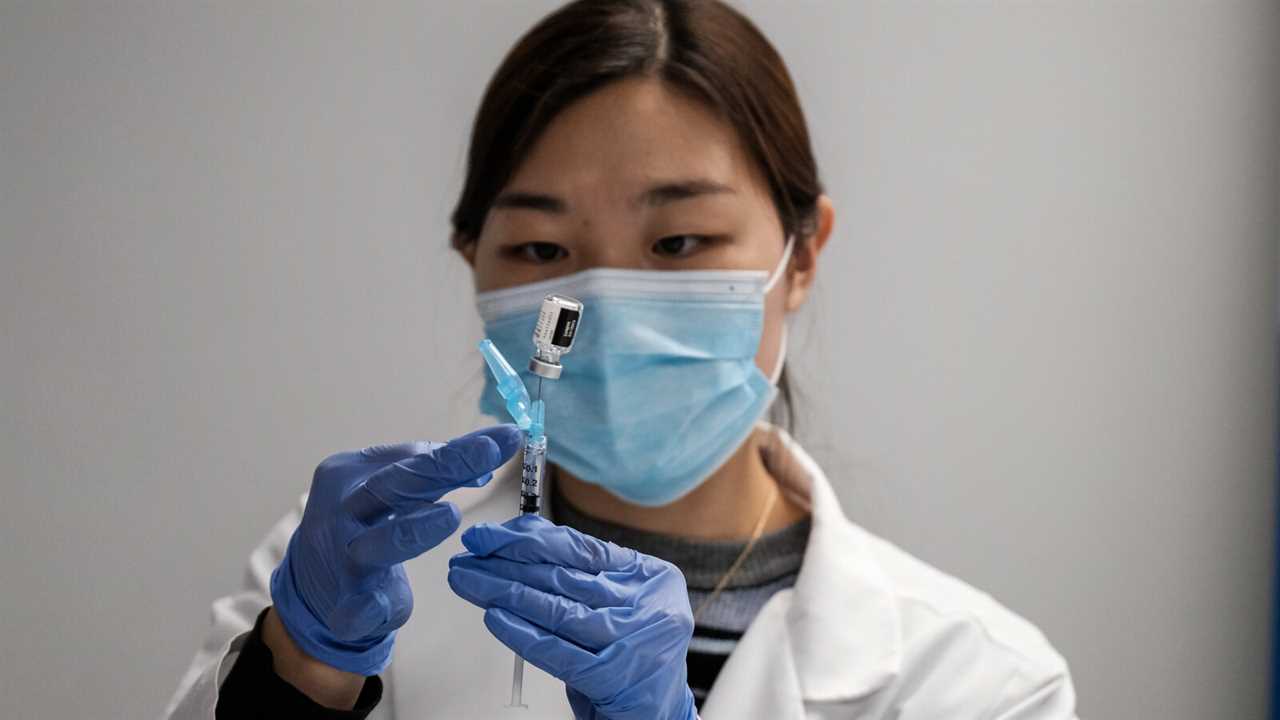
WASHINGTON — Elizabeth Graves, an ardent supporter of President Trump, is not opposed to vaccines. She said she had taken flu shots and pneumonia shots and, having just turned 50, was interested in being vaccinated against shingles.
But Ms. Graves, a legal transcriptionist in Starkville, Miss., said she would not be taking a coronavirus vaccine — and the sight of Vice President Mike Pence rolling up his sleeve to get vaccinated on live television on Friday, she added, would not change her mind.
Lawrence Palmer, 51, a field service engineer in Boiling Springs, Pa., and Brandon Lofgren, 25, who works in his family’s trucking and construction business in rural Wisconsin, said they felt the same way. All are fans of Mr. Trump, and echoed Ms. Graves, who said she was “suspicious” of government and that Mr. Pence’s vaccination “doesn’t mean a thing to me.”
It is a paradox of the pandemic: Helping speed the development of a coronavirus vaccine may be one of Mr. Trump’s proudest accomplishments, but at least in the early stages of the vaccine rollout, there is evidence that a substantial number of his supporters say they do not want to get it.
Until the past week, their objections were largely hypothetical. But with a second vaccine about to become available in the United States — the Food and Drug Administration was moving on Friday to authorize emergency use of the vaccine developed by Moderna, a week after the version developed by Pfizer and BioNTech won the same approval — more people will confront the choice of getting inoculated or not. The authorization will clear the way for the shipment of 5.9 million doses over the weekend and tens of millions more in coming months, greatly expanding the reach of the vaccination campaign as the nation grapples with the uncontrolled spread of the disease.
For the most part, public opinion has been swinging in favor of vaccination. Seventy-one percent of Americans are willing to be vaccinated, up from 63 percent in September, according to a survey released this week by the Kaiser Family Foundation.
Still, the survey found that Republicans were the most likely to be hesitant, with 42 percent saying they would probably not or definitely not be vaccinated, as compared with 12 percent of Democrats.
Experts say that vaccine hesitancy may diminish over time if people see friends and relatives getting vaccinated without incident. Sheri Simms, 62, a retired businesswoman in Northeast Texas who describes herself as a “moderate conservative” supporter of the president, said that while she did not intend to get vaccinated now, that could change.
“As more information comes out, and things appear to work better, then I will weigh the risks of the vaccine against the risk of the coronavirus and make a judgment,” she said.
The “anti-vaxxer movement” is not new, and it typically cuts across political parties. But the coronavirus vaccine, developed against the backdrop of a bitterly fought presidential election and championed by an especially polarizing figure in Mr. Trump, has become especially associated with partisanship.
During the campaign, while Mr. Trump was promising a vaccine by Election Day, some Democrats expressed concern about whether safety would be sacrificed in the rush to deliver a vaccine in time to help the president at the polls.
Political leaders in both parties worked on Friday to dispel concerns about the vaccine.
Mr. Pence, who took the Pfizer vaccine on Friday in a ceremony at the Eisenhower Executive Office Building in Washington, was not the only prominent public official to get vaccinated. On Capitol Hill, congressional leaders including Speaker Nancy Pelosi, a Democrat, and Senator Mitch McConnell, the Republican leader, were also inoculated against Covid-19. President-elect Joseph R. Biden Jr. and his wife, Jill Biden, are to be vaccinated on Monday.






